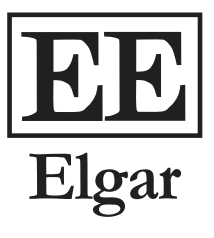
Written by Katerina Antoniou
Peacebuilding tourism, a subset of peace tourism, has been defined as a form of tourism through which individuals “engage in peace-oriented travel specifically due to their professional capacity” (Antoniou, 2022). In other words, peace experts and peace-oriented professionals travelling for work can be considered peacebuilding tourists. In September 2023, I had the opportunity to become a peacebuilding tourist myself, when I travelled to South Korea to join the Global Korea Forum on Peace Education as a speaker, an initiative organised by Okedongmu Children in Korea (OKCK).
The trip lasted for four days. The peacebuilding tourists of the forum, including myself, had the opportunity to visit the DMZ and discuss with locals. It was undoubtedly an educational and enriching experience, not only in terms of the information collected, but more so for the meaningful contact established between hosts and visitors, as they admitted to having a common struggle towards reconciliation in their respective communities.
My visit to South Korea highlighted that the local and visiting peace professionals shared a common appreciation of sustainable peace and had an aligned worldview on the missed potential of divided societies. On a state level, North and South Korea have seized all diplomatic relations and, in recent years, contact and movement across the two territories is no longer possible. For the case of Cyprus, 2024 marks 50 years from the island’s geographical partition, with movement across the divide being possible since 2003. With previously UN-mediated negotiation efforts reaching a halt in 2017, there hasn’t yet been any progress for a peace settlement on the level of political leadership.
The discrepancy between the activity of peace professionals as individual experts, and their respective state’s diplomatic and political activity suggests that citizens can be separate political actors from the states they affiliate with. Korea and Cyprus offer apt examples for suggesting that states and citizens have separate political activity, with peace professionals trying to keep peace prospects alive while state governments fail to move beyond the intractability of their division.
Despite the dim prospects for reconciliation at the state level for Korea and Cyprus, civil society has actively sought opportunities for peacebuilding across the divide. In Korea, OKCK has been able to achieve contact between children from North and South Korea and, in a period of no transborder movement, past visits are utilized to humanize the other community for children in South Korea. In Cyprus, transcommunal movement has enabled peace-oriented civil society organisations to involve members of both communities across age groups in joint initiatives for sports, language learning, research, arts, the environment, and education. Through the peacebuilding work of Nicosia’s peace-oriented civil society, numerous locals have had the opportunity for meaningful and positive contact with members of the other community.
Civil society’s peacebuilding work has direct impact on political perceptions and prospects for reconciliation, and thus can affect the applicability and sustainability of political peace settlements. Arguably, citizens engaging in peacebuilding and reconciliation work can be seen as separate political actors with the potential to influence the outcome of peace processes and international political discourse.
The political agency of individual citizens is not necessarily confined by state boundaries – that is, individual political activists and peacebuilders do not necessarily only affect their own country’s political discourse. In an era of global interconnectedness and citizen-led movements growing on a transnational scale, individuals can become political actors beyond their state’s borders.
Mary Kaldor coined the term global civil society to describe transnational civil movements that engage in coordinated political action on an international scale. In the context of peacebuilding, peace professionals with transnational activity and participation in an international network of likeminded experts can be seen as an example of global civil society, in which individual citizens join forces transnationally to serve a global vision of sustainable peace. Reflecting on my recent visit to Korea, I realise that the political activity of peace professionals from Cyprus and Korea is more aligned than it is for the peace professionals with the political activity of their respective states.
To this end, peacebuilding tourism holds significant potential in creating links between individuals engaging in peacebuilding work and elevating their political activity and impact on an international scale. In my book, Tourism as a Form of International Relations (2023), I emphasize the political agency of individuals by highlighting the input each one of us can have through tourism. Not only peace professionals, but any individual can engage in peace-oriented travel and join international initiatives that foster opportunities for empathy, cross-cultural literacy, and reduction of prejudice. Sustainable forms of tourism have the capacity to generate structures of equity and security and lead to new opportunities for peace through avenues of sustainable development, citizen-led diplomacy, and niche tourism. Most importantly, peacebuilding tourism offers an avenue to peace at a time when formal state avenues in divided societies appear to have reached a deadlock.
References:
Antoniou, K. (2023). Tourism as a Form of International Relations. Edward Elgar Publishing.
Antoniou, K. (2022). Peacebuilding Tourism. In Encyclopedia of Tourism Management and Marketing. Edward Elgar Publishing.

Tourism as a Form of International Relations by Katerina Antoniou, University of Central Lancashire, Cyprus, is available here.
Read Chapter 1 for free on ElgarOnline.


Leave a Reply